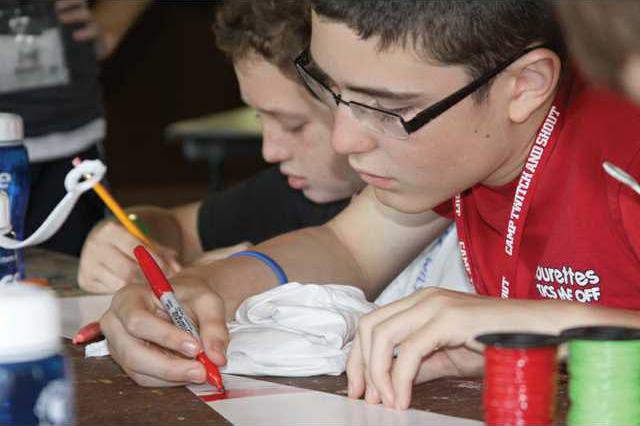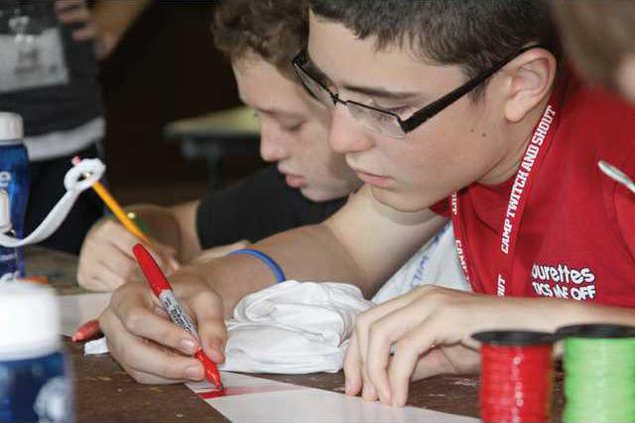At Camp Twitch and Shout, it’s instant friendship.
More than 100 students with Tourette syndrome are camping at Camp Will-A-Way at Fort Yargo State Park in Winder, and for once, they don’t have to give any explanations.
“Kids can be free to be with others who have Tourette syndrome,” said Danner Weeks, a rising fourth-grader at Centennial Arts Academy. “You make friends and don’t feel lonely and like you’re the only person in the world with Tourette’s.”
There are no therapy sessions or group talks during the weeklong overnight camp — just pure fun.
“It’s about having a place where no one stares at you,” said Hailey Sasin, a camp director. “It’s just a place to be a kid and fit in and have fun.”
The camp pulled in 49 students last year and grew to 111 this year, causing camp directors to create a waiting list and turn down a few campers. About half of the students are from Georgia, and the other half hails from 20 states around the country. It’s one of five Tourette summer camps in the country. Throughout the week, students engage in arts and crafts, canoeing, kayaking, tree climbing, swimming and making music.
“The high rope course was pretty scary and pretty crazy, but the zip line at the end was awesome,” said Trent Deal, a home-schooled high school sophomore from Gainesville. Though the campgrounds and activities are more crowded this year than last, Deal said he doesn’t mind.
“You see more people and become friends with more people,” he said. “We don’t really talk about our tics. Instead, we go around and see what else we have in common.”
The camp was started last year in partnership with Camp Twin Lakes to help the kids who usually can’t attend regular camps because of their medications and constant tics. Several camp counselors and teachers also have Tourette syndrome, which can be a big help.
“They can really be role models as successful teachers or students in college,” said Sasin, also a teacher of autistic children at Fair Oaks Elementary School in Marietta. She was diagnosed with Tourette syndrome at age 11 and improved throughout college. “You can have people say they understand how you feel, but they mean it, and it makes a world of difference.”
For Brad Cohen, who started the camp, it’s about making life easier for kids than the way he experienced it. Cohen served as vice president on the Board of Governors for the Tourette Syndrome Association of Georgia and founded the Brad Cohen Tourette Foundation to help kids with the condition.
Cohen was teased in school and called to the front of class to apologize for the barking noises he made and later became an elementary school teacher in Cobb County. In 2005 he wrote a book called “Front of the Class: How Tourette Syndrome Made Me the Teacher I Never Had,” which Hallmark turned into a movie in 2008. The star of the film, Jimmy Wolk, played Cohen and comes to camp as one of the counselors each year.
“It’s a place of growth,” Wolk said while helping students place rubber bands on shirts to tie dye. “It’s important to see how much fun they’re having and notice how much both the campers and counselors grow.”
According to the Centers for Disease Control and Prevention, three out of every 1,000 school-age children are believed to have Tourette syndrome. The cause is unknown, but genetics appear to play a role. Most children develop the condition between ages 7 and 10, and if their tics are mild to moderate, they usually don’t need medicine. Symptoms peak during the late teens or early 20s.
“I like being with other people who understand me,” said Preston Weeks, a rising eighth-grader at Gainesville Middle School. “Some people pick on me at school, and it’s hard. It’s nice everyone here knows what you’re going through.”

